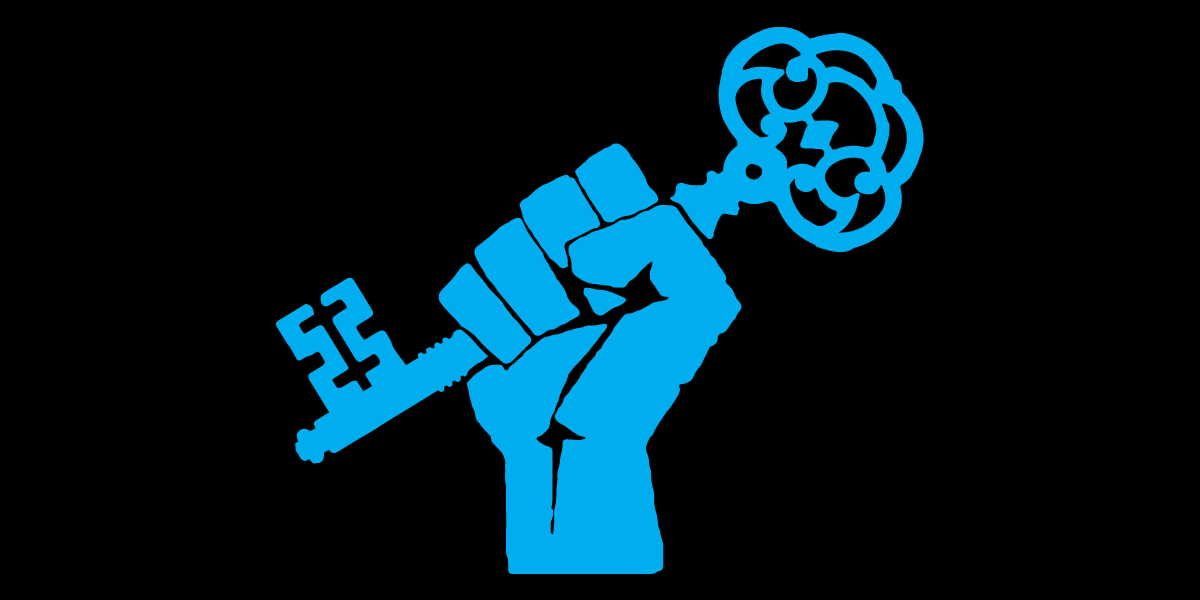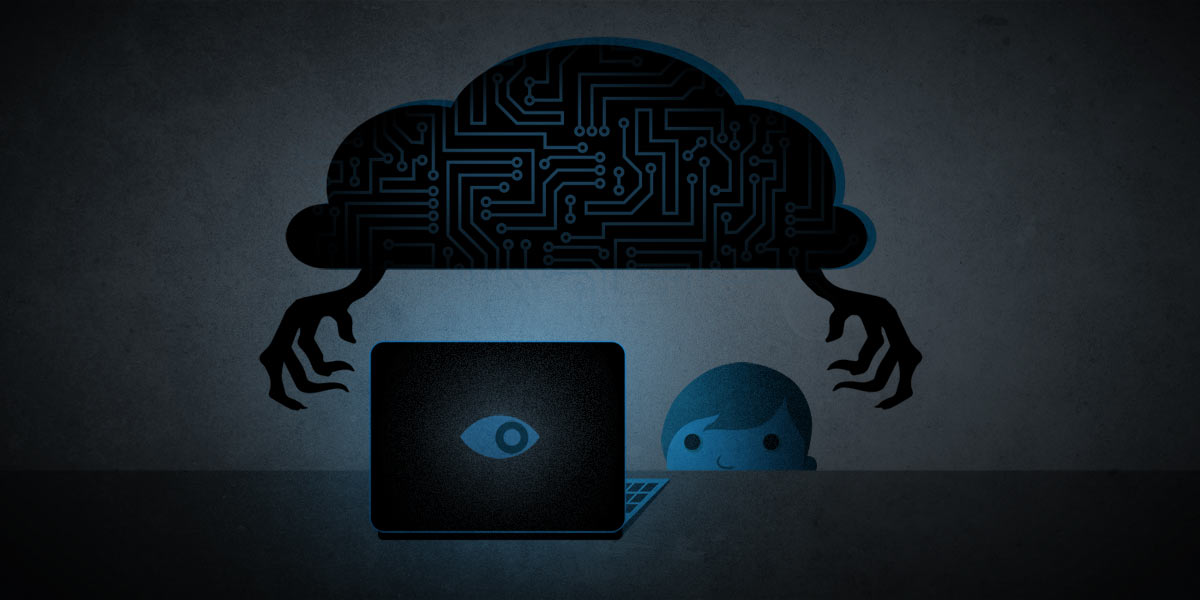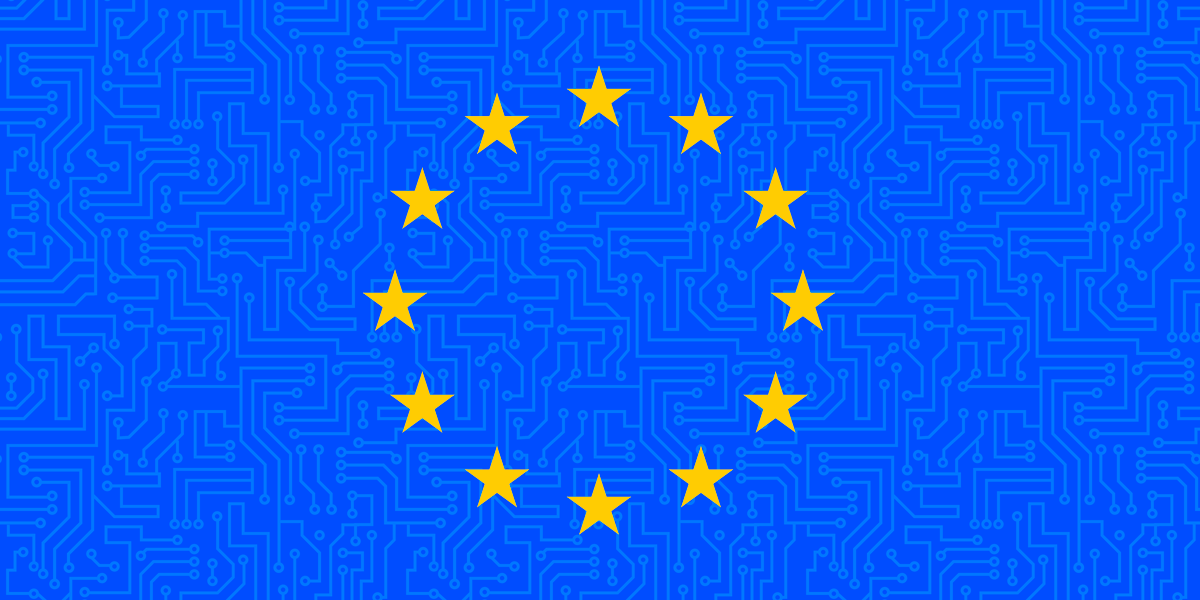Every year, countless emails hit our inboxes telling us that our personal information was accessed, shared, or stolen in a data breach. In many cases, there is little we can do. Most of us can assume that at least our phone numbers, emails, addresses, credit card numbers, and social security numbers are all available somewhere on the internet.
But some of these data breaches are more noteworthy than others, because they include novel information about us, are the result of particularly noteworthy security flaws, or are just so massive they’re impossible to ignore. For that reason, we are introducing the Breachies, a series of tongue-in-cheek “awards” for some of the most egregious data breaches of the year.
If these companies practiced a privacy first approach and focused on data minimization, only collecting and storing what they absolutely need to provide the services they promise, many data breaches would be far less harmful to the victims. But instead, companies gobble up as much as they can, store it for as long as possible, and inevitably at some point someone decides to poke in and steal that data.
Once all that personal data is stolen, it can be used against the breach victims for identity theft, ransomware attacks, and to send unwanted spam. The risk of these attacks isn’t just a minor annoyance: research shows it can cause psychological injury, including anxiety, depression, and PTSD. To avoid these attacks, breach victims must spend time and money to freeze and unfreeze their credit reports, to monitor their credit reports, and to obtain identity theft prevention services.
This year we’ve got some real stinkers, ranging from private health information to—you guessed it—credit cards and social security numbers.
The Winners
The Just Stop Using Tracking Tech Award: Kaiser Permanente
In one of the year's most preventable breaches, the healthcare company Kaiser Permanente exposed 13 million patients’ information via tracking code embedded in its website and app. This tracking code transmitted potentially sensitive medical information to Google, Microsoft, and X (formerly known as Twitter). The exposed information included patients’ names, terms they searched in Kaiser’s Health Encyclopedia, and how they navigated within and interacted with Kaiser’s website or app.
The most troubling aspect of this breach is that medical information was exposed not by a sophisticated hack, but through widely used tracking technologies that Kaiser voluntarily placed on its website. Kaiser has since removed the problematic code, but tracking technologies are rampant across the internet and on other healthcare websites. A 2024 study found tracking technologies sharing information with third parties on 96% of hospital websites. Websites usually use tracking technologies to serve targeted ads. But these same technologies give advertisers, data brokers, and law enforcement easy access to details about your online activity.
While individuals can protect themselves from online tracking by using tools like EFF’s Privacy Badger, we need legislative action to make online privacy the norm for everyone. EFF advocates for a ban on online behavioral advertising to address the primary incentive for companies to use invasive tracking technology. Otherwise, we’ll continue to see companies voluntarily sharing your personal data, then apologizing when thieves inevitably exploit a vulnerability in these tracking systems.
Head back to the table of contents.
The Most Impactful Data Breach for ’90s Kids Award: Hot Topic
If you were in middle or high school any time in the ’90s you probably have strong memories of Hot Topic. Baby goths and young punk rockers alike would go to the mall, get an Orange Julius and greasy slice of Sbarro pizza, then walk over to Hot Topic to pick up edgy t-shirts and overpriced bondage pants (all the while debating who was the biggest poser and which bands were sellouts, of course). Because of the fundamental position Hot Topic occupies in our generation’s personal mythology, this data breach hits extra hard.
In November 2024, Have I Been Pwned reported that Hot Topic and its subsidiary Box Lunch suffered a data breach of nearly 57 million data records. A hacker using the alias “Satanic” claimed responsibility and posted a 730 GB database on a hacker forum with a sale price of $20,000. The compromised data about approximately 54 million customers reportedly includes: names, email addresses, physical addresses, phone numbers, purchase history, birth dates, and partial credit card details. Research by Hudson Rock indicates that the data was compromised using info stealer malware installed on a Hot Topic employee’s work computer. “Satanic” claims that the original infection stems from the Snowflake data breach (another Breachie winner); though that hasn’t been confirmed because Hot Topic has still not notified customers, nor responded to our request for comment.
Though data breaches of this scale are common, it still breaks our little goth hearts, and we’d prefer stores did a better job of securing our data. Worse, Hot Topic still hasn’t publicly acknowledged this breach, despite numerous news reports. Perhaps Hot Topic was the real sellout all along.
Head back to the table of contents.
The Only Stalkers Allowed Award: mSpy
mSpy, a commercially-available mobile stalkerware app owned by Ukrainian-based company Brainstack, was subject to a data breach earlier this year. More than a decade’s worth of information about the app’s customers was stolen, as well as the real names and email addresses of Brainstack employees.
The defining feature of stalkerware apps is their ability to operate covertly and trick users into believing that they are not being monitored. But in reality, applications like mSpy allow whoever planted the stalkerware to remotely view the contents of the victim’s device in real time. These tools are often used to intimidate, harass, and harm victims, including by stalkers and abusive (ex) partners. Given the highly sensitive data collected by companies like mSpy and the harm to targets when their data gets revealed, this data breach is another example of why stalkerware must be stopped.
Head back to the table of contents.
The I Didn’t Even Know You Had My Information Award: Evolve Bank
Okay, are we the only ones who hadn’t heard of Evolve Bank? It was reported in May that Evolve Bank experienced a data breach—though it actually happened all the way back in February. You may be thinking, “why does this breach matter if I’ve never heard of Evolve Bank before?” That’s what we thought too!
But here’s the thing: this attack affected a bunch of companies you have heard of, like Affirm (the buy now, pay later service), Wise (the international money transfer service), and Mercury Bank (a fintech company). So, a ton of services use the bank, and you may have used one of those services. It’s been reported that 7.6 million Americans were affected by the breach, with most of the data stolen being customer information, including social security numbers, account numbers, and date of birth.
The small bright side? No customer funds were accessed during the breach. Evolve states that after the breach they are doing some basic things like resetting user passwords and strengthening their security infrastructure.
Head back to the table of contents.
The We Told You So Award: AU10TIX
AU10TIX is an “identity verification” company used by the likes of TikTok and X to confirm that users are who they claim to be. AU10TIX and companies like it collect and review sensitive private documents such as driver’s license information before users can register for a site or access some content.
Unfortunately, there is growing political interest in mandating identity or age verification before allowing people to access social media or adult material. EFF and others oppose these plans because they threaten both speech and privacy. As we said in 2023, verification mandates would inevitably lead to more data breaches, potentially exposing government IDs as well as information about the sites that a user visits.
Look no further than the AU10TIX breach to see what we mean. According to a report by 404 Media in May, AU10TIX left login credentials exposed online for more than a year, allowing access to very sensitive user data.
404 Media details how a researcher gained access to the company’s logging platform, “which in turn contained links to data related to specific people who had uploaded their identity documents.” This included “the person’s name, date of birth, nationality, identification number, and the type of document uploaded such as a drivers’ license,” as well as images of those identity documents.
The AU10TIX breach did not seem to lead to exposure beyond what the researcher showed was possible. But AU10TIX and other companies must do a better job at locking down user data. More importantly, politicians must not create new privacy dangers by requiring identity and age verification.
If age verification requirements become law, we’ll be handing a lot of our sensitive information over to companies like AU10TIX. This is the first We Told You So Breachie award, but it likely won’t be the last.
Head back to the table of contents.
The Why We’re Still Stuck on Unique Passwords Award: Roku
In April, Roku announced not yet another new way to display more ads, but a data breach (its second of the year) where 576,000 accounts were compromised using a “credential stuffing attack.” This is a common, relatively easy sort of automated attack where thieves use previously leaked username and password combinations (from a past data breach of an unrelated company) to get into accounts on a different service. So, if say, your username and password was in the Comcast data breach in 2015, and you used the same username and password on Roku, the attacker might have been able to get into your account. Thankfully, less than 400 Roku accounts saw unauthorized purchases, and no payment information was accessed.
But the ease of this sort of data breach is why it’s important to use unique passwords everywhere. A password manager, including one that might be free on your phone or browser, makes this much easier to do. Likewise, credential stuffing illustrates why it’s important to use two-factor authentication. After the Roku breach, the company turned on two-factor authentication for all accounts. This way, even if someone did get access to your account password, they’d need that second code from another device; in Roku’s case, either your phone number or email address.
Head back to the table of contents.
The Listen, Security Researchers are Trying to Help Award: City of Columbus
In August, the security researcher David Ross Jr. (also known as Connor Goodwolf) discovered that a ransomware attack against the City of Columbus, Ohio, was much more serious than city officials initially revealed. After the researcher informed the press and provided proof, the city accused him of violating multiple laws and obtained a gag order against him.
Rather than silencing the researcher, city officials should have celebrated him for helping victims understand the true extent of the breach. EFF and security researchers know the value of this work. And EFF has a team of lawyers who help protect researchers and their work.
Here is how not to deal with a security researcher: In July, Columbus learned it had suffered a ransomware attack. A group called Rhysida took responsibility. The city did not pay the ransom, and the group posted some of the stolen data online. The mayor announced the stolen data was “encrypted or corrupted,” so most of it was unusable. Later, the researcher, David Ross, helped inform local news outlets that in fact the breach did include usable personal information on residents. He also attempted to contact the city. Days later, the city offered free credit monitoring to all of its residents and confirmed that its original announcement was inaccurate.
Unfortunately, the city also filed a lawsuit, and a judge signed a temporary restraining order preventing the researcher from accessing, downloading, or disseminating the data. Later, the researcher agreed to a more limited injunction. The city eventually confirmed that the data of hundreds of thousands of people was stolen in the ransomware attack, including drivers licenses, social security numbers, employee information, and the identities of juvenile victims, undercover police officers, and confidential informants.
Head back to the table of contents.
The Have I Been Pwned? Award: Spoutible
The Spoutible breach has layers—layers of “no way!” that keep revealing more and more amazing little facts the deeper one digs.
It all started with a leaky API. On a per-user basis, it didn’t just return the sort of information you’d expect from a social media platform, but also the user’s email, IP address, and phone number. No way! Why would you do that?
But hold on, it also includes a bcrypt hash of their password. No way! Why would you do that?!
Ah well, at least they offer two-factor authentication (2FA) to protect against password leakages, except… the API was also returning the secret used to generate the 2FA OTP as well. No way! So, if someone had enabled 2FA it was immediately rendered useless by virtue of this field being visible to everyone.
However, the pièce de resistance comes with the next field in the API: the “em_code.” You know how when you do a password reset you get emailed a secret code that proves you control the address and can change the password? That was the code! No way!
-EFF thanks guest author Troy Hunt for this contribution to the Breachies.
Head back to the table of contents.
The Reporting’s All Over the Place Award: National Public Data
In January 2024, there was almost no chance you’d have heard of a company called National Public Data. But starting in April, then ramping up in June, stories revealed a breach affecting the background checking data broker that included names, phone numbers, addresses, and social security numbers of at least 300 million people. By August, the reported number ballooned to 2.9 billion people. In October, National Public Data filed for bankruptcy, leaving behind nothing but a breach notification on its website.
But what exactly was stolen? The evolving news coverage has raised more questions than it has answered. Too bad National Public Data has failed to tell the public more about the data that the company failed to secure.
One analysis found that some of the dataset was inaccurate, with a number of duplicates; also, while there were 137 million email addresses, they weren’t linked to social security numbers. Another analysis had similar results. As for social security numbers, there were likely somewhere around 272 million in the dataset. The data was so jumbled that it had names matched to the wrong email or address, and included a large chunk of people who were deceased. Oh, and that 2.9 billion number? That was the number of rows of data in the dataset, not the number of individuals. That 2.9 billion people number appeared to originate from a complaint filed in Florida.
Phew, time to check in with Count von Count on this one, then.
How many people were truly affected? It’s difficult to say for certain. The only thing we learned for sure is that starting a data broker company appears to be incredibly easy, as NPD was owned by a retired sheriff’s deputy and a small film studio and didn’t seem to be a large operation. While this data broker got caught with more leaks than the Titanic, hundreds of others are still out there collecting and hoarding information, and failing to watch out for the next iceberg.
Head back to the table of contents.
The Biggest Health Breach We’ve Ever Seen Award: Change Health
In February, a ransomware attack on Change Healthcare exposed the private health information of over 100 million people. The company, which processes 40% of all U.S. health insurance claims, was forced offline for nearly a month. As a result, healthcare practices nationwide struggled to stay operational and patients experienced limits on access to care. Meanwhile, the stolen data poses long-term risks for identity theft and insurance fraud for millions of Americans—it includes patients’ personal identifiers, health diagnoses, medications, insurance details, financial information, and government identity documents.
The misuse of medical records can be harder to detect and correct that regular financial fraud or identity theft. The FTC recommends that people at risk of medical identity theft watch out for suspicious medical bills or debt collection notices.
The hack highlights the need for stronger cybersecurity in the healthcare industry, which is increasingly targeted by cyberattacks. The Change Healthcare hackers were able to access a critical system because it lacked two-factor authentication, a basic form of security.
To make matters worse, Change Healthcare’s recent merger with Optum, which antitrust regulators tried and failed to block, even further centralized vast amounts of sensitive information. Many healthcare providers blamed corporate consolidation for the scale of disruption. As the former president of the American Medical Association put it, “When we have one option, then the hackers have one big target… if they bring that down, they can grind U.S. health care to a halt.” Privacy and competition are related values, and data breach and monopoly are connected problems.
Head back to the table of contents.
The There’s No Such Thing As Backdoors for Only “Good Guys” Award: Salt Typhoon
When companies build backdoors into their services to provide law enforcement access to user data, these backdoors can be exploited by thieves, foreign governments, and other adversaries. There are no methods of access that are magically only accessible to “good guys.” No security breach has demonstrated that more clearly than this year’s attack by Salt Typhoon, a Chinese government-backed hacking group.
Internet service providers generally have special systems to provide law enforcement and intelligence agencies access to user data. They do that to comply with laws like CALEA, which require telecom companies to provide a means for “lawful intercepts”—in other words, wiretaps.
The Salt Typhoon group was able to access the powerful tools that in theory have been reserved for U.S. government agencies. The hackers infiltrated the nation’s biggest telecom networks, including Verizon, AT&T, and others, and were able to target their surveillance based on U.S. law enforcement wiretap requests. Breaches elsewhere in the system let them listen in on calls in real time. People under U.S. surveillance were clearly some of the targets, but the hackers also targeted both 2024 presidential campaigns and officials in the State Department.
While fewer than 150 people have been identified as targets so far, the number of people who were called or texted by those targets run into the “millions,” according to a Senator who has been briefed on the hack. What’s more, the Salt Typhoon hackers still have not been rooted out of the networks they infiltrated.
The idea that only authorized government agencies would use such backdoor access tools has always been flawed. With sophisticated state-sponsored hacking groups operating across the globe, a data breach like Salt Typhoon was only a matter of time.
Head back to the table of contents.
The Snowballing Breach of the Year Award: Snowflake
Thieves compromised the corporate customer accounts for U.S. cloud analytics provider Snowflake. The corporate customers included AT&T, Ticketmaster, Santander, Neiman Marcus, and many others: 165 in total.
This led to a massive breach of billions of data records for individuals using these companies. A combination of infostealer malware infections on non-Snowflake machines as well as weak security used to protect the affected accounts allowed the hackers to gain access and extort the customers. At the time of the hack, April-July of this year, Snowflake was not requiring two-factor authentication, an account security measure which could have provided protection against the attacks. A number of arrests were made after security researchers uncovered the identities of several of the threat actors.
But what does Snowflake do? According to their website, Snowflake “is a cloud-based data platform that provides data storage, processing, and analytic solutions.” Essentially, they store and index troves of customer data for companies to look at. And the larger the amount of data stored, the bigger the target for malicious actors to use to put leverage on and extort those companies. The problem is the data is on all of us. In the case of Snowflake customer AT&T, this includes billions of call and text logs of its customers, putting individuals’ sensitive data at risk of exposure. A privacy-first approach would employ techniques such as data minimization and either not collect that data in the first place or shorten the retention period that the data is stored. Otherwise it just sits there waiting for the next breach.
Head back to the table of contents.
Tips to Protect Yourself
Data breaches are such a common occurrence that it’s easy to feel like there’s nothing you can do, nor any point in trying. But privacy isn’t dead. While some information about you is almost certainly out there, that’s no reason for despair. In fact, it’s a good reason to take action.
There are steps you can take right now with all your online accounts to best protect yourself from the the next data breach (and the next, and the next):
- Use unique passwords on all your online accounts. This is made much easier by using a password manager, which can generate and store those passwords for you. When you have a unique password for every website, a data breach of one site won’t cascade to others.
- Use two-factor authentication when a service offers it. Two-factor authentication makes your online accounts more secure by requiring additional proof (“factors”) alongside your password when you log in. While two-factor authentication adds another step to the login process, it’s a great way to help keep out anyone not authorized, even if your password is breached.
- Freeze your credit. Many experts recommend freezing your credit with the major credit bureaus as a way to protect against the sort of identity theft that’s made possible by some data breaches. Freezing your credit prevents someone from opening up a new line of credit in your name without additional information, like a PIN or password, to “unfreeze” the account. This might sound absurd considering they can’t even open bank accounts, but if you have kids, you can freeze their credit too.
- Keep a close eye out for strange medical bills. With the number of health companies breached this year, it’s also a good idea to watch for healthcare fraud. The Federal Trade Commission recommends watching for strange bills, letters from your health insurance company for services you didn’t receive, and letters from debt collectors claiming you owe money.
Head back to the table of contents.
(Dis)Honorable Mentions
By one report, 2023 saw over 3,000 data breaches. The figure so far this year is looking slightly smaller, with around 2,200 reported through the end of the third quarter. But 2,200 and counting is little comfort.
We did not investigate every one of these 2,000-plus data breaches, but we looked at a lot of them, including the news coverage and the data breach notification letters that many state Attorney General offices host on their websites. We can’t award the coveted Breachie Award to every company that was breached this year. Still, here are some (dis)honorable mentions:
ADT, Advance Auto Parts, AT&T, AT&T (again), Avis, Casio, Cencora, Comcast, Dell, El Salvador, Fidelity, FilterBaby, Fortinet, Framework, Golden Corral, Greylock, Halliburton, HealthEquity, Heritage Foundation, HMG Healthcare, Internet Archive, LA County Department of Mental Health, MediSecure, Mobile Guardian, MoneyGram, muah.ai, Ohio Lottery, Omni Hotels, Oregon Zoo, Orrick, Herrington & Sutcliffe, Panda Restaurants, Panera, Patelco Credit Union, Patriot Mobile, pcTattletale, Perry Johnson & Associates, Roll20, Santander, Spytech, Synnovis, TEG, Ticketmaster, Twilio, USPS, Verizon, VF Corp, WebTPA.
What now? Companies need to do a better job of only collecting the information they need to operate, and properly securing what they store. Also, the U.S. needs to pass comprehensive privacy protections. At the very least, we need to be able to sue companies when these sorts of breaches happen (and while we’re at it, it’d be nice if we got more than $5.21 checks in the mail). EFF has long advocated for a strong federal privacy law that includes a private right of action.















